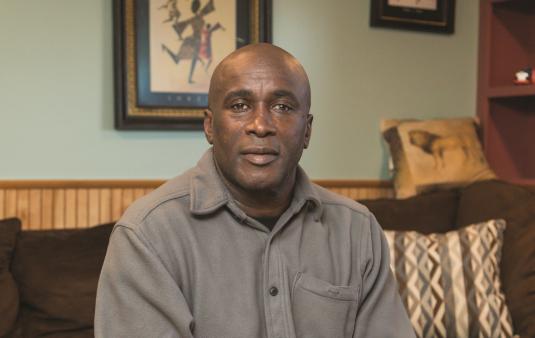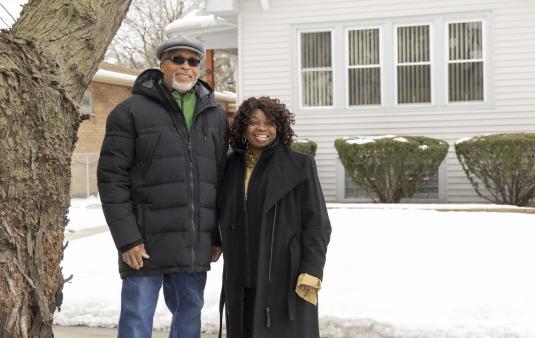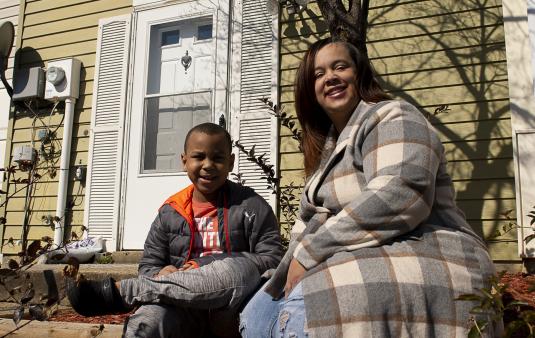How long does it take to foreclose on a home in Delaware?
Foreclosure is a complicated multistep process that allows mortgage lenders to repossess homes from homeowners who have missed payments on their mortgage loan. Delaware’s foreclosure process can take six to nine months or longer.
What is the best way to avoid foreclosure in Delaware?
The first step for any homeowner facing foreclosure or eviction should be to contact a HUD-approved housing counselor to better understand your options. Housing counselors are typically free and offered by a local nonprofit. BlueHub SUN may also be an option to prevent foreclosure and eviction. Find out if you qualify.
What are the steps of the foreclosure process in Delaware?
Understanding the steps involved in the foreclosure process can help homeowners better navigate this difficult situation. Below is a summary of the foreclosure and eviction processes in Delaware. However, it is important to remember that laws can change and how courts and agencies interpret and apply them can also change. Some rules can even vary within a state.
- Notice of Default:
- The foreclosure process begins when a borrower misses a mortgage payment and becomes late, meaning they “default” on their mortgage loan. In Delaware, mortgage lenders are not required to send homeowners a notice saying the homeowner has defaulted on their mortgage loan; however, most mortgages include language that requires a lender to do so. Therefore, in Delaware, it is still common for lenders to send homeowners a “Notice of Default,” giving homeowners the opportunity to “cure” the default, which means to catch up on their missed mortgage payments.
- Notice of Intent to Foreclose:
- A lender must send a homeowner a “Notice of Intent to Foreclose” by certified and first-class mail at least 45-days before initiating the foreclosure in court. It is important to note that in Delaware the foreclosure process is judicial, meaning it will be handled through the court system, and a judge or jury will deliberate on the case. The Notice of Intent to Foreclose tells the homeowner that the lender intends to start a foreclosure lawsuit in the Superior Court in the county where the property is located.
- Foreclosure Complaint:
- At least 45 days after receiving the “Notice of Intent to Foreclose” and 120 days after the initial default, the lender can file a “foreclosure complaint” with the Superior Court in the county where the property is located. A foreclosure complaint is essentially a lawsuit filed by the lender as they seek the court’s permission to foreclose on the property. The foreclosure complaint should also include details of the default such as the balance due, including unpaid interest and additional costs and fees.
- Foreclosure Mediation:
- Mediation allows the homeowner to speak with a housing counselor and participate in a mediation session before the court can decide whether a property should be foreclosed, and before the court can “enter a judgment” of foreclosure.
- Notice of Foreclosure Mediation: Homeowners (of one-to-four family primary residences) are automatically assigned mediation; the lender must send the court a “Notice of Foreclosure Mediation” alongside the foreclosure complaint for properties in this category. The lender must provide the “Notice of Foreclosure Mediation” alongside the complaint to the homeowner through certified mail or hand delivery.
- Filing a Certificate of Participation: Although the homeowner is automatically provided mediation, to participate in the process, homeowners must file a “Certificate of Participation” with the Superior Court. The Certificate of Participation form will be attached to the “Notice of Foreclosure Mediation” (4a above). Once the certificate is filed, homeowners are required to meet with a HUD-approved housing counselor. If a homeowner does not file a Certificate of Participation, they will still be able to attend a mediation conference and meet with the lender’s representative. However, when working to avoid foreclosure, filling the certificate and meeting with a housing counselor is more likely to be successful.
- Mediation Scheduling Notice: The Superior Court will issue both the homeowner and lender a “Mediation Scheduling Notice.” This notice outlines the date, time and location of the mediation conference and the contact information for the mediator.
- Mediation Conference: The mediation conference will happen between 45-75 days after the “Foreclosure Mediation Notice” was served. It is required that both the homeowner and lender appear in person at the mediation conference. If for a good reason you are unable to attend the mediation conference on the scheduled date, you may request the conference to be rescheduled. If the request is not made promptly, it may be denied.
- Mediation allows the homeowner to speak with a housing counselor and participate in a mediation session before the court can decide whether a property should be foreclosed, and before the court can “enter a judgment” of foreclosure.
- Service of Complaint:
- After the foreclosure complaint and mediation notices are filed, the lender must serve the foreclosure complaint to the homeowner, typically by certified mail or hand delivery.
- Answering the Complaint:
- The homeowner has 20 days to respond to the foreclosure complaint and file an answer. The homeowner is allowed to file an answer later than 20 days if they have elected for mediation. In this case, the answer should be filed on or before the scheduled mediation date. An answer is a formal response to the allegations in the complaint. The homeowner must respond to each allegation, admitting, denying or stating that there is insufficient information to admit or deny. The homeowner will file the answer by mail or hand delivery with the Superior Court.
- Homeowners are highly encouraged to consult with an attorney before the judicial foreclosure proceeding begins.
- Default Judgment:
- If the homeowner does not file an answer within 20-days or on/before the mediation date, the lender can receive a “default judgment” from the judge. A default judgment is when the court automatically allows the lender to move ahead with the foreclosure sale since the homeowner has not provided any arguments against it.
- Case Scheduling Order:
- If the homeowner does file an answer, there will be no default judgment, and the Superior Court will issue a case scheduling order that notifies both parties about dates, deadlines and court appearances throughout the judicial foreclosure.
- Foreclosure Judgment:
- The foreclosure lawsuit and complaint filed by the lender will go to trial. The homeowner and lender will be made aware of the date in the case scheduling order (see #8). Trial is the opportunity for the homeowner to defend themselves and elaborate on their points made in the answer (see #6). If, during the trial, the court grants the foreclosure judgment in favor of the lender, the judge will order that the property be sold at a foreclosure sale.
- Notice of Sheriff’s Sale (Foreclosure Sale):
- A notice of the sale must be published in two local newspapers for at least two weeks prior to the sale date, provided to the homeowner at least ten days before sale through mail or hand delivery, and posted in ten prominent public locations (town hall, public library, etc.).
- Reinstating the Mortgage:
- Reinstatement is when a homeowner pays back all the missed payments, interest, fees, and costs in one lump sum. In Delaware, there is no rule regarding mortgage reinstatement once the foreclosure process begins. However, many mortgage contracts give homeowners the right to reinstatement before the sheriff’s sale, and in some cases, lenders may agree to reinstatement. If a homeowner completes these payments, their mortgage will be reinstated, and they will be able to keep their home. It is recommended to consult with an attorney to see if you are allowed reinstatement.
- Sheriff's Sale:
- If a homeowner does not reinstate their property or reinstatement is not an option, the sheriff’s sale will occur. The property will be sold at the courthouse in the county where the property is located, and the highest bidder becomes the new owner.
- Claim the Surplus:
- If the profits from a foreclosure sale exceeds the amount of the mortgage debt, interests, and additional costs, the former homeowner may be entitled to claim that surplus amount. In Delaware, there is no specific timeframe given to claim surplus funds, but it is important to act quickly.
- Contact the Sheriff's Office: Since the foreclosure sale is conducted by the county sheriff's office, they will typically be responsible for the surplus funds and can provide the necessary information to claim them.
- Provide Proof of Prior Ownership: You may need to provide documentation to establish your identity and your ownership interest in the property. This could include proof of your identity, copies of the foreclosure documents and any other relevant paperwork.
- File a Motion: In some cases, you may need to file a motion with the court that oversaw the foreclosure proceedings (the Superior Court of the county) to formally request the release of the surplus funds. This motion will include details about the foreclosure proceedings, the foreclosure sale, the surplus funds available, and the legal basis at which you believe you are entitled to claim the surplus.
- Court Approval: The court will review your motion/request and the relevant documentation to ensure that you are entitled to the surplus funds. If the court approves your claim, it may issue an order directing the distribution of the surplus funds to you.
- Distribution of Funds: The sheriff's office will distribute the surplus funds to you according to the court's order. It's important to follow any instructions provided by the sheriff's office to ensure that you receive the funds.
- Although this is the typical process for claiming surplus, the process may take longer, especially if at the foreclosure auction, the home is purchased by the mortgage servicer or mortgage lender (the lender who initiated the foreclosure) rather than a third-party buyer. In this case, the former homeowner may have to work with the mortgage lender to address the surplus funds, which may not be released to the former homeowner until the property has been vacated and sold to a third-party buyer by the mortgage loan servicer/lender.
- If the profits from a foreclosure sale exceeds the amount of the mortgage debt, interests, and additional costs, the former homeowner may be entitled to claim that surplus amount. In Delaware, there is no specific timeframe given to claim surplus funds, but it is important to act quickly.
- Deficiency Judgment:
- Conversely, when the foreclosure sale proceeds do not cover the amount the former homeowner owes the lender, the lender may seek a “deficiency judgment” against the former homeowner. In doing so, the lender will file a “deficiency action” lawsuit. During this lawsuit, the court will determine the amount of the deficiency, if any, and the former homeowner will have an opportunity to defend against the claim.
- Since deficiency judgments can have significant financial implications, if a homeowner is facing a potential deficiency judgment, it is advisable to seek legal counsel from a qualified attorney with experience in real estate and foreclosure matters. The deficiency judgment is sought to recover the remaining balance on the mortgage loan after the foreclosure sale, and it is specific to the lender or lien holder who held the mortgage on the foreclosed property. Other lien holders or creditors who may have liens on the property but were not part of the foreclosure lawsuit typically cannot seek a deficiency judgment against the homeowner.
- Example: The total amount you owe on your mortgage loan, including outstanding principal, interest, fees, and costs is $300,000. If your home sells for $200,000 at the foreclosure sale, the deficiency is $100,000.
- Conversely, when the foreclosure sale proceeds do not cover the amount the former homeowner owes the lender, the lender may seek a “deficiency judgment” against the former homeowner. In doing so, the lender will file a “deficiency action” lawsuit. During this lawsuit, the court will determine the amount of the deficiency, if any, and the former homeowner will have an opportunity to defend against the claim.
- Confirmation of Sale:
- In Delaware, the homeowner has no right to redemption after the sale is complete, meaning they have no opportunity to repurchase the property; therefore, the Superior Court can proceed with confirmation of the foreclosure sale. The new owner must file a petition with the court, requesting the judge to confirm the sale. Once the sale in confirmed, the new owner will receive a certificate of sale, and they will be granted a deed to the property. Up until confirmation, the homeowner can stay on the property, but after, the former homeowner will be ordered to vacate.
- Writ of Possession:
- If the former homeowner does not vacate the property after the confirmation of sale, the new owner can begin the eviction process within 30-days by applying for a writ of possession, which is a court order that allows the new owner to take physical possession of the property and evict any occupants through lawful means; it authorizes the county sheriff’s office to perform the eviction. Once the writ of possession is granted and submitted to the sheriff’s office, the sheriff’s office will then proceed by scheduling an eviction date. The time between the writ being granted and the sheriff's office scheduling the eviction date can range from a few weeks to a couple of months, depending on the caseload of the sheriff's office and any local court procedures. During this time, occupants may have the opportunity to vacate the property voluntarily or negotiate with the lender or new owner.
- Notice to Leave:
- The former homeowner will be notified of the scheduled eviction date through a written “notice to leave.” The sheriff’s office will post the notice to leave on the property, giving the former homeowner 24 hours to vacate the property.
- Eviction:
- If the former homeowner has not vacated the property within the 24-hour period, the sheriff or constable will physically remove them from the property, and their belongings will be removed and stored in a storage facility for 7 days. If the former homeowner has yet to claim their property and pay the removal and storage expenses within the 7 days, the property will be deemed as abandoned.









